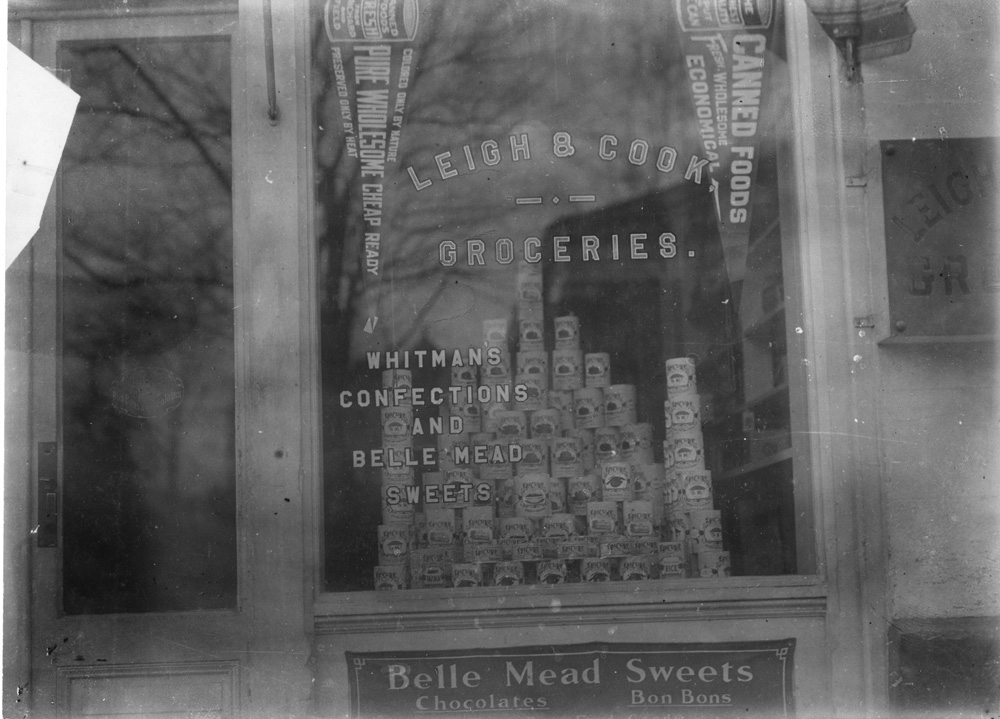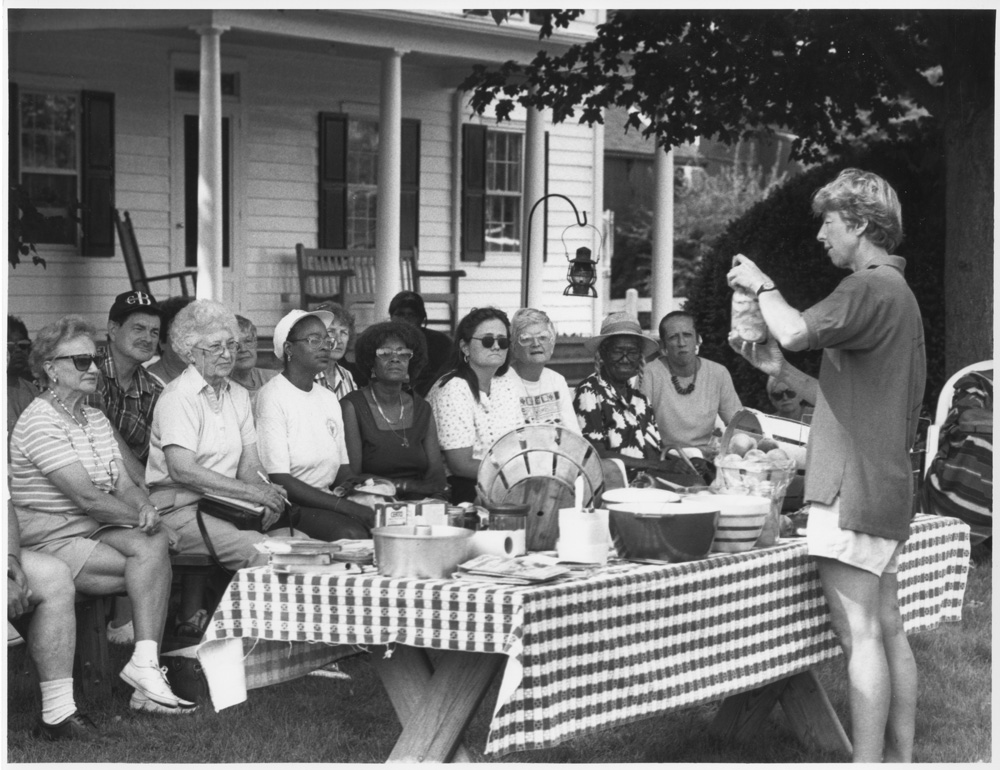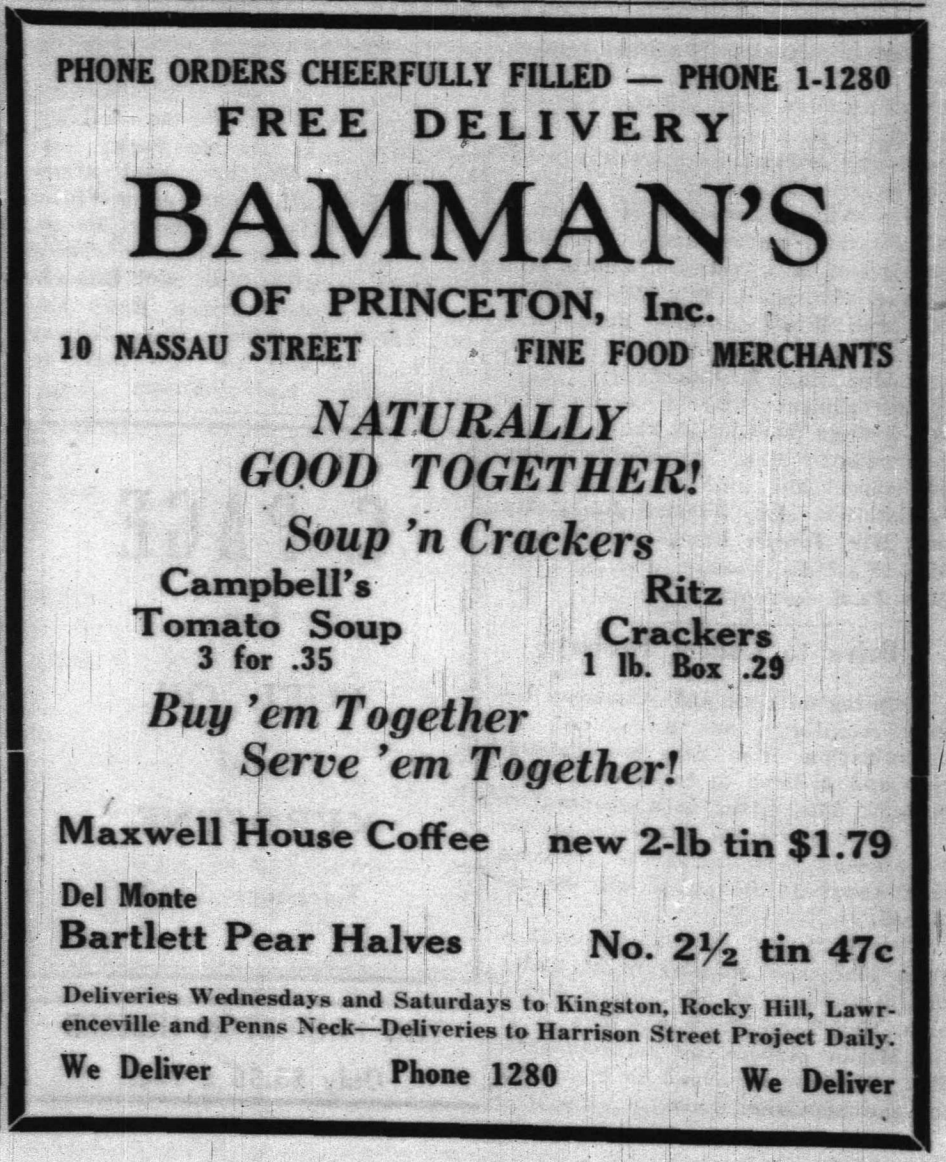6. The Food Processing Revolution
What’s growing here? Tomatoes
New Jersey’s food processing industry, which froze, canned, and bottled the Garden State’s produce, was the hallmark of consumer food products for over one hundred years. The nation’s first commercial canning plant opened in New Jersey in 1847, with larger players, such as the Joseph Campbell Preserve Company, coming onto the scene by 1873.
The tomato, which flourished in southern New Jersey’s sandy soil, was the star of the food processing show, the main ingredient in Campbell’s condensed soup, Heinz tomato ketchup, and Hunt’s canned stewed tomatoes. Campbell’s even played a role in cultivating the company’s future tomato growers, by running tomato growing competitions in New Jersey high schools, including ones local to Princeton.
By 1934, New Jersey farmers harvested 48,252 acres of tomatoes in a year, nearly double the acreage of any other crop. One tomato trucker recalls the immense scale of the state’s tomato production - he would sit for hours outside processing plants waiting to unload tomatoes, in a line of trucks that stretched for miles. Sometimes, the tomatoes would rot in the trucks during the long wait, and the truckers would turn around and use the mush for fertilizer.
By the 1970s, New Jersey’s major food processing companies began to move their plants westward, taking advantage of California’s year-round growing season, lower cost labor, and less stringent air pollution laws. Today, the vast majority of tomatoes in New Jersey are harvested for market, not for processing, and the acreage devoted to tomatoes in the state has declined by over 90%.

Banners in the shop window at the Leigh and Cook grocery store on Nassau Street advertise canned foods as “fresh, wholesome, and economical.” Canned vegetables are stacked in a display.
Collection of the Historical Society of Princeton

Today, local farms perform their own boutique food processing and canning. Here, Pam Mount of nearby Terhune Orchards works in her canning workshop at the farm in 1996.
Princeton Packet Photo Collection. Collection of the Historical Society of Princeton

Grocery stores, like Bamman’s, advertised their Campbell’s products in the Princeton Herald newspaper.